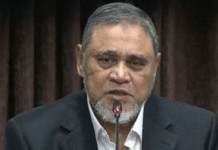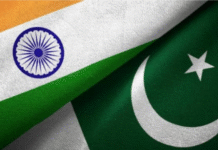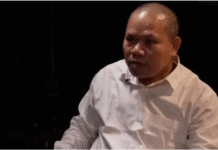
Bidyanondo Foundation has become quite a household name in recent days. Their dedicated service to humanity in these difficult times of Covid-19 has brought them under the limelight. But the organisation and its founding chairman have also become the target of vicious hate crime and racist attacks in social media. The chairman is a member of a religious minority group and the haters alleged that he was messing with the religious belief of the poor.
Surprisingly, no one from the authorities cared to do something about these vicious attacks. But the foundation and people in general stood by him. In this connection, one commented on social media that “as usual, dishonest people get the accolades, while good people are discredited on baseless issues.”
Similarly, we often see that journalists, free thinkers and activists who nurture the principles of democracy are accused of spreading rumours and defaming individuals. The tool that is most commonly used against them is the Digital Security Act 2018, which can lead to arrests without a warrant and proper investigation. Since its enactment in September 2018, it has been termed as a “draconian” act, particularly in reference to its sections 8, 21, 25, 28, 29, 31, 32, 43 and 53. In addition, the act reinstated the colonial-era Official Secrets Act of 1923 that makes investigative journalism almost impossible. One may recall that while praising the act, one ruling party lawmaker had called it a “heavenly law” and claimed, bizarrely, that the world would follow Bangladesh after the passing of such a law!
Indeed, this “heavenly” act was used recently to sue eleven individuals. Two of the accused, cartoonist Ahmed Kabir Kishore and writer Mushtaq Ahmed, landed in jail for posting cartoons in social media. This incident took place against the backdrop of the disappearance of photojournalist Shafiqul Islam Kajol on March 10. On the same day, Editor-in-Chief of daily Manabzamin Matiur Rahman Chowdhury and 31 others including Kajol were sued under the Digital Security Act for “publishing false news and circulating it on social media”. The trend then continued with the filing of cases against Editor-in-Chief of bdnews24.com Toufique Imrose Khalidi and Acting Editor of jagonews24.com Mohiuddin Sarker. In these confusing times of Covid-19 pandemic, when the free flow of information is vital to save lives, the opposite is happening in Bangladesh.
If hatred and racist propaganda on digital platforms is not a crime, then how can posting or sharing of cartoons, critical status and news links be deemed offences under the Digital Security Act? Since when have these activities become a crime in a democracy? Those who are bestowed with the authority of exercising power must understand that criticism is not sedition or defamation. It is logical for an aggrieved person to be critical of any action by any state functionary and the people within it.
Those who advocated for the act either had no understanding of digital security or intentionally planned it to gag media and freedom of expression. Digital security is all about securing personal identity from theft as well as protection of assets and systems by using tools like firewall, anti-virus, biometric verification of identity while accessing a system, etc. It has nothing to do with tarnishing one’s image in the cyber world. Unfortunately, we have knowingly or naively mixed up Cyber Security with Digital Security. As defined by the world’s leading anti-virus enterprise, Kaspersky, the so-called crimes in question here in Bangladesh fall within the bigger purview of cyber threats and, if narrowed down, within the purview of cyber-attacks. Our ignorance made us so vulnerable to cybercrimes that cybercriminals looted USD 81 million (later only USD 18 million was recovered) from the national exchequer in February 2016, just by sending some phishing emails. Surprisingly, despite having clear provisions for trying such crimes under the Digital Security Act, no case has ever been filed in Bangladesh.
The act seems to be a weapon of mass destruction for press freedom and freedom of expression in Bangladesh. Instead of combatting cyber fraud and cybercrimes, it is being frequently used by a section of people to hide various forms of transgressions. Although article 39 (2)(b) of the constitution of Bangladesh guarantees the freedom of the press, there have been numerous acts and policies that are not only jeopardising press freedom but also serving the interests of a vested quarter. State functionaries that are supposed to govern the press have been made ineffective.
For instance, Bangladesh Press Council is mandated to preserve the freedom of the press and to maintain and improve the standard of newspapers and news agencies in Bangladesh. It was established as a quasi-judicial body in 1979 under the Press Council Act, 1974. It was the outcome of a consensus that an independent authority should exist for safeguarding the freedom of the press and protecting individuals and institutions from excesses by the media. But in reality, the council has neither the authority to govern the press and ensure its freedom nor has any stake in the bureaucracy-led policy formulation process, a process that gave birth to the Digital Security Act—no other country in the world perhaps has so many acts and policies directly or indirectly limiting press freedom.
So contrary to what the lawmaker had hoped during the birth of this act, the world is not following Bangladesh. It is rather shocked to observe what is going on in the name of digital security, and how the freedom of thought, freedom of expression, and press freedom are being violated randomly. The act denies the very basic principles of the constitution of Bangladesh. Let us take a cue from the famous letter of Martin Luther King, Jr. that he wrote from the Birmingham City Jail—”I am in Birmingham because injustice is here… Injustice anywhere is a threat to justice everywhere.”
Meer Ahsan Habib is a communication for development professional.
Email: meer.riyadh@gmail.com









